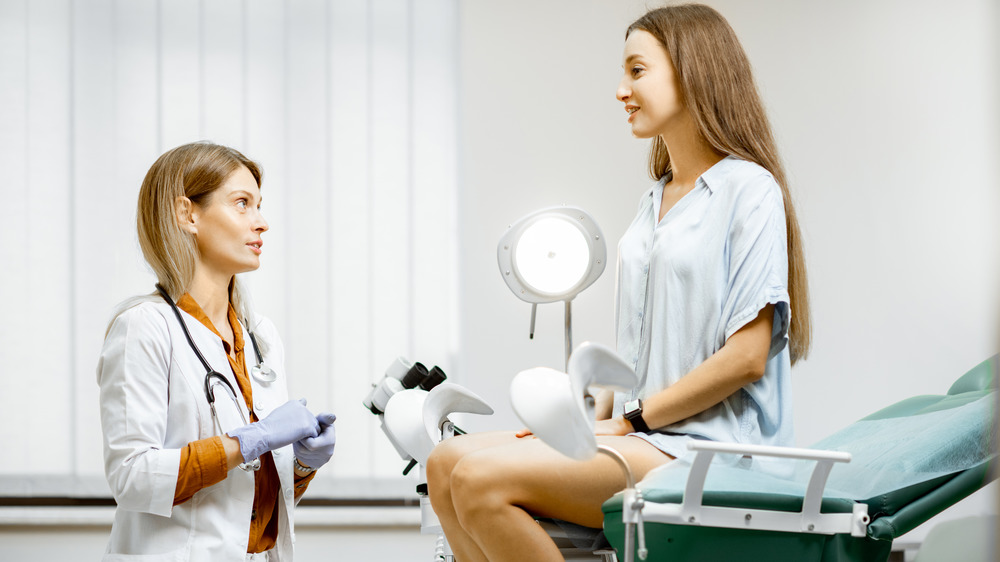Here's When You Need To Make An Appointment With Your Gynecologist
For many women, heading to the gynecologist can be nerve-wracking. But there's no need for it to be. As Antonio Pizarro, M.D., a board-certified gynecologist in Louisiana, told Teen Vogue, "It is normal to be nervous about going to the doctor, especially to address an issue as private and personal as reproductive health. Patients should not let this overwhelm them." He continued, "There will be a female chaperone if a pelvic exam is needed, even if the clinician is a woman," adding, "Pelvic examination can cause patients to experience pressure, but it should not cause pain."
So, now that you're not as nervous, you probably are wondering when exactly you need to make an appointment with your gynecologist. Lucky for you, Edwin Huang, M.D., a gynecologist at Massachusetts General Hospital in Boston has all the answers. "When and how often you see your gynecologist depends upon your age and life circumstances," Dr. Huang told Everyday Health. However, ideally, he noted, "Women should start seeing a gynecologist when they become sexually active or within two to three years of becoming sexually active."
Your gynecologist can help with changes in your menstrual cycle
If you're not sexually active but are over the age of 21, Dr. Huang also recommends making an appointment. In terms of advice suggesting you return to the gynecologist every year after your initial visit, "There's no evidence that it's valuable," Dr. Martha Richardson, assistant clinical professor of obstetrics, gynecology, and reproductive biology at Harvard Medical School, told Harvard Health Publishing. "But there are health and quality-of-life issues that may not be optimally addressed" if you don't she warned, adding, "Your gynecologist may be better equipped than your primary care provider to address issues related to hormone therapy, sexual function, and the female reproductive system."
Ultimately, when it comes to annual check-ins, you're totally in control. But if you notice any changes in your period or menstrual cycle, experience irregular bleeding, or have any pain that your doctor can't diagnose, you should probably speak to your gynecologist to be safe.


